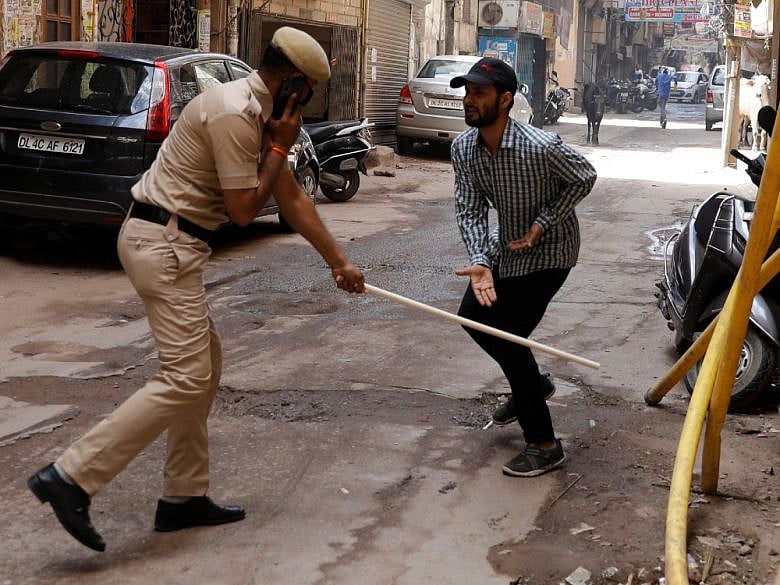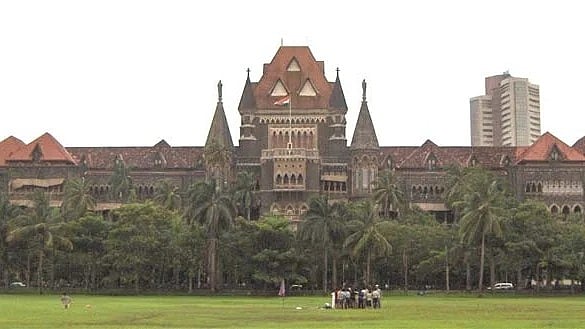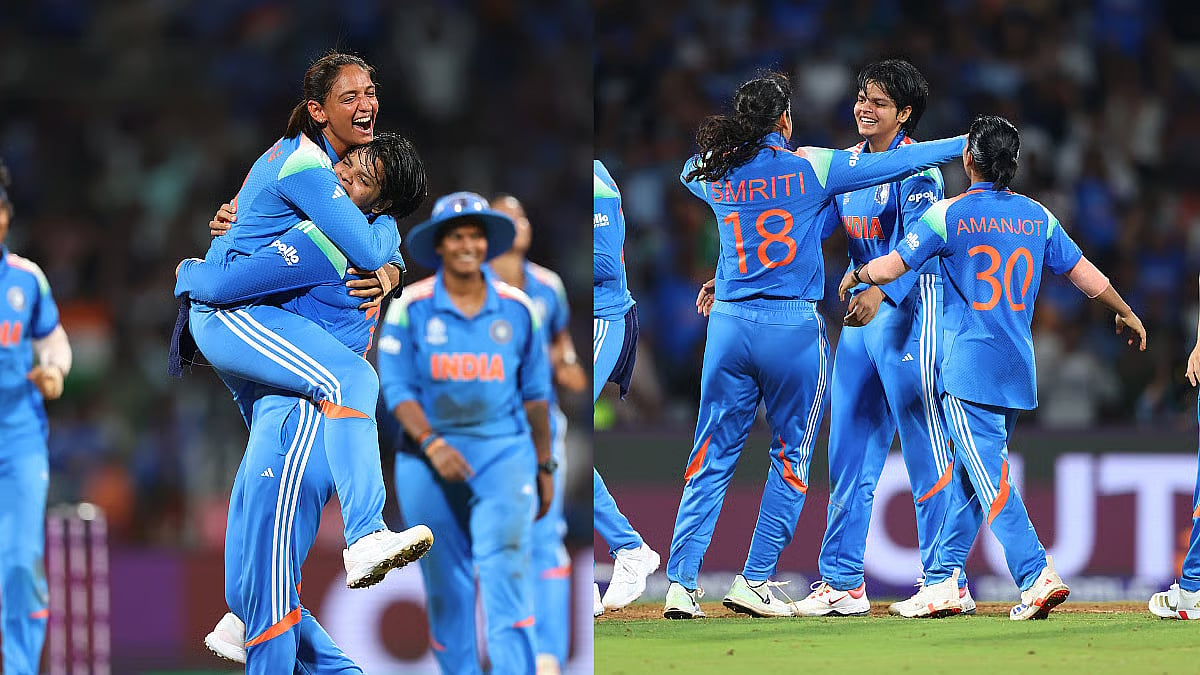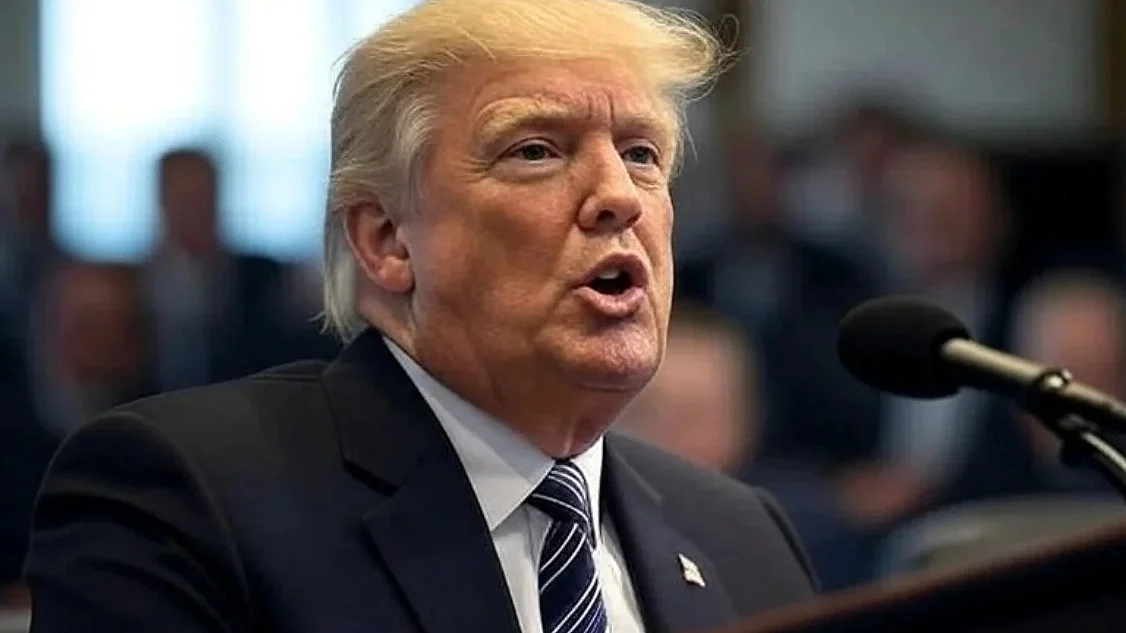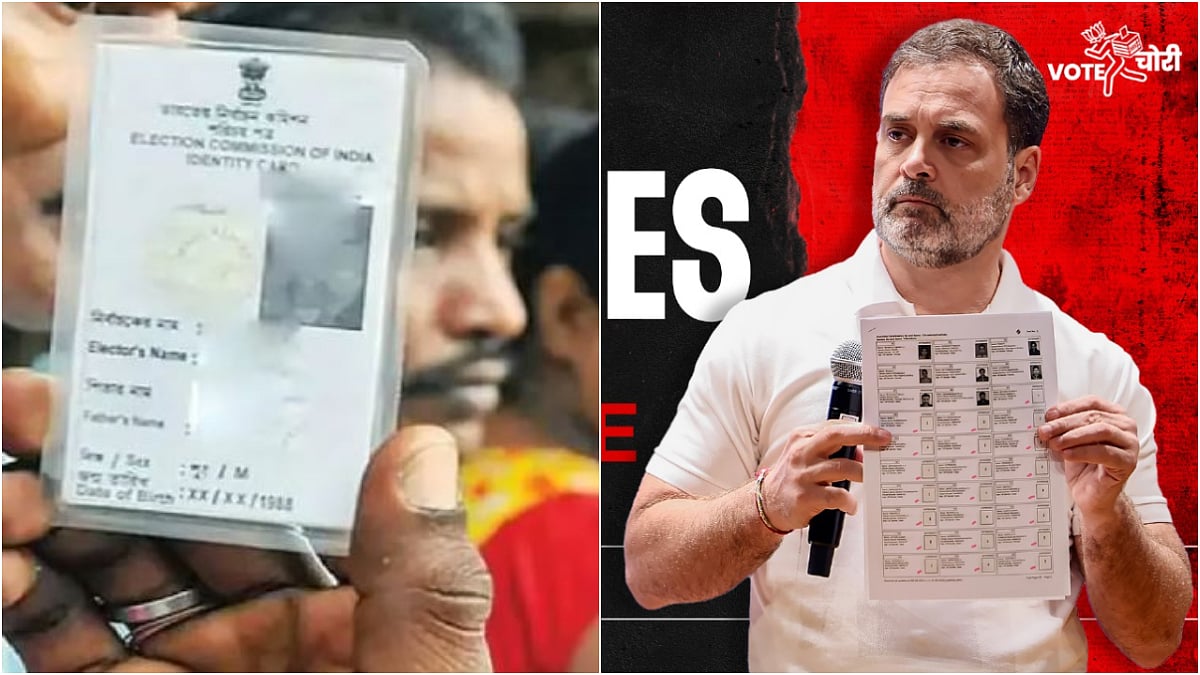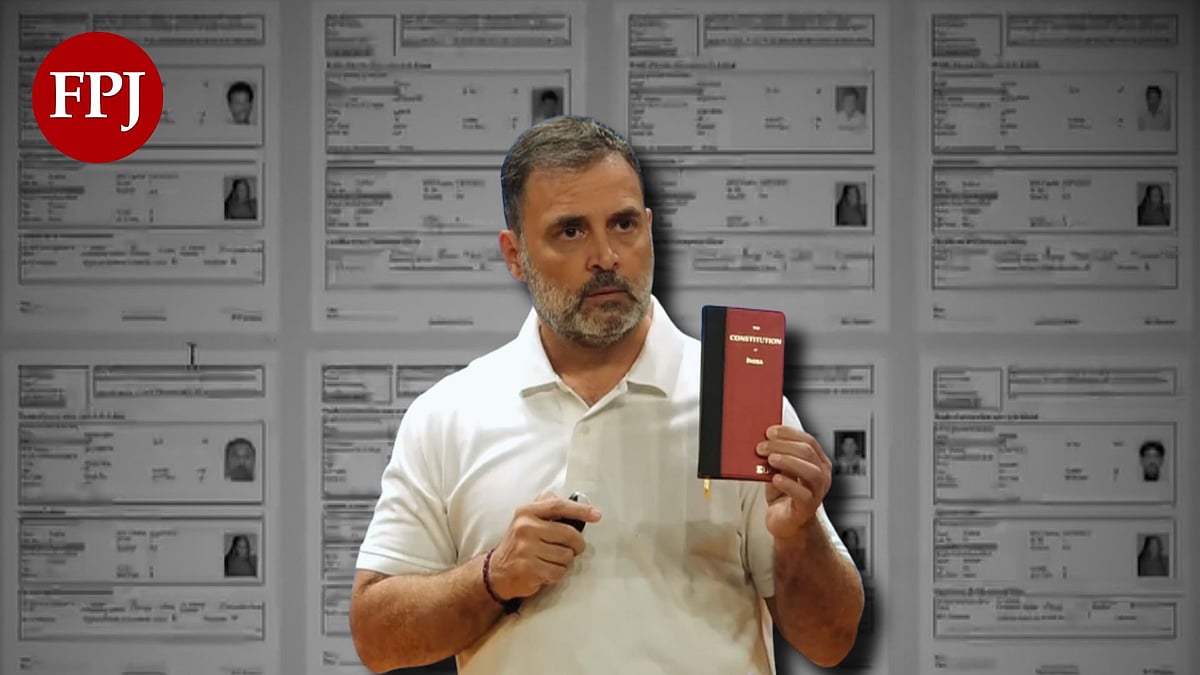If the Indian police takes the right lessons from its mishandling of the coronavirus curfew, it can add a new dimension to its crisis management skills.
To begin with, it has an unenviable job but it messed up things by its indiscriminate use of force and its inflexibility; inability to make exceptions for delivery boys, drivers ferrying essential service workers, trucks carrying vegetables, etc.
No doubt citizens initially took the curfew orders lightly and mindlessly crowded grocery shops but the cops too erred by opting for the usual strong-arm approach. Individuals are being hit even before they can explain why they ventured out. Social media is flooded with visuals of power-drunk policemen using excessive and, at times, brute force; something that the mainstream media too has pointed out.
Strangely, the police leadership was blind to the signals, knowing fully well that cops too can attract provisions of IPC section 324 (voluntarily causing hurt by dangerous weapons) for indiscriminate caning. Pushed, no doubt by their political bosses, they were single-minded in their quest to keep the citizens locked up in their homes. At times, journalists and doctors too were not spared.
Such knee-jerk reactions alienate the public which then remembers the men in uniform at their worst; a force that forgets its duty and sides with arsonists, as in the recent Delhi riots or looks the other way, as with rampaging Dalit mobs in Mumbai two years ago. Memories of cops working round the clock to help citizens during natural calamities recede into the background.
The danger of indiscriminate caning on such a large scale is that this violence against citizens can become a part of police culture.
Anyway, over-reliance on the ‘danda’ is not only a debatable approach but it also highlights the police-public disconnect. Consulting the local municipal corporators or the MLAs to gauge the public mood and to fine tune curfew strategy would have been a smart move but that does not seem to have happened.
By and large, the Indian police is disdainful of the people it serves; something that can be set right only if the Supreme Court’s directives on police reforms are adopted in earnest by state governments.
It is also doubtful whether the cops spoke to representatives of the business and trade sectors on how to maintain the supply and distribution of essential supplies. Such was the overkill that couriers delivering medicines, groceries or food were thrashed, leading to disruption of e-commerce which in turn led to panic buying. Finally, on-line grocery stores such as BigBasket were forced to appeal to the cops through the media.
It is not surprising then that one hears of IAS officers joining the chorus of complaints. In Maharashtra, Jawaharlal Nehru Port Trust chairman Sanjay Sethi complained to the chief secretary about the police stopping trucks carrying essential commodities and ordering petrol pumps to shut down.
Responding to the outcry against ’police raj’, Chief Minister Uddhav Thackeray has instructed the director-general of police and the police commissioner of Mumbai to behave in a humane manner with citizens during the lockdown. A course-correction has begun but citizens also need to behave responsibly.
Other chief ministers no doubt will have to address the situation. However, instead of waiting to be told, police chiefs can use the crisis to redeem the image of the Indian police.
There have been initiatives such as using home guards to deliver medicine and groceries and to help voluntary agencies feed blind beggars. Then, there is the viral video clip of a senior woman police officer addressing residents of a Bangalore housing colony on a megaphone.
Politicians must also realise that everything cannot be done by brute force alone and that to be effective the police force has to be made more accountable to the public; something that can be done only if police reforms are implemented.
The writer is a journalist. Views are personal. anilsinghjournalist@gmail.com
